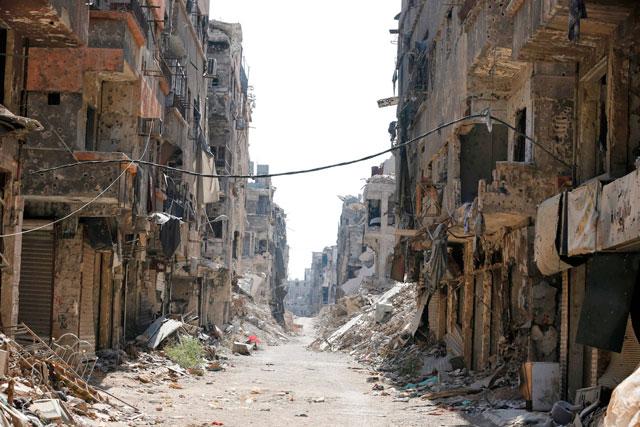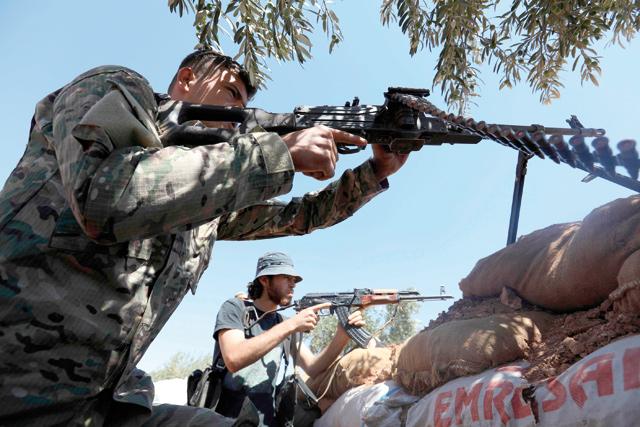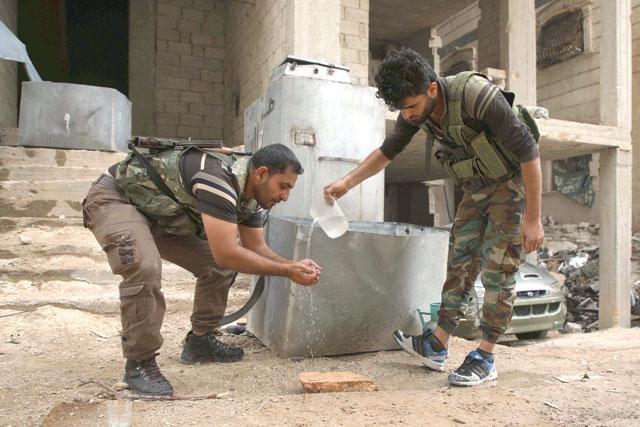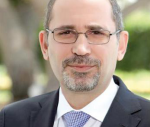You are here
Syria's Idlib at heart of tense Russia-Turkey face-off
By AFP - Mar 29,2018 - Last updated at Mar 29,2018
BEIRUT, Lebanon — The fate of Syria's Idlib will depend on Turkey's ability to keep a lid on the extremist-dominated tinderbox and prevent an explosive Russian-backed government offensive on its doorstep, analysts say.
Largely outside government control since 2015, the northwestern province is home to some 2.5 million people, including many rebels evacuated there after being defeated in other areas by President Bashar Assad's forces.
"Assad's fiercest foes are being gathered in Idlib, and there would be great temptation for Russia to green light a regime offensive on the province," Syria expert Nicholas Heras said.
But "Turkey needs Idlib to serve as a buffer against the war," said Heras, a fellow at the Centre for a New American Security.
Since it erupted in 2011, Syria’s conflict had drawn in myriad foreign forces, including Russia’s air force and Iranian-backed militias on Assad’s behalf, and Turkey in support of rebels.
The conflict has killed more than 350,000 people and displaced more than half the population, including more than three million across the border to Turkey.
Already overwhelmed, Ankara is determined to prevent more Syrians from fleeing into its territory and even says it wants to create conditions for mass refugee returns.
“Turkey needs Idlib to serve as a buffer against the war. If Assad tried to seize Idlib, at a bare minimum hundreds of thousands of people would be displaced, and they would have few places to run to,” Heras said.
The incentive is clear for Turkey to prevent the chaos that would result from a regime assault — but to do so, it will have to rein in the province’s powerful extremists.
Extremist dominant
Hayat Tahrir Al Sham (HTS), a group led by Al Qaeda’s former Syrian affiliate, dominates Idlib’s military scene and civilian infrastructure.
Unless Ankara decides otherwise, analysts say, the group will probably retain influence in the province, where a myriad of extremists and other rebels have vied for power since 2015.
But chinks have recently begun appearing in HTS’s armour, starting with its loss of dozens of areas to a government offensive in Idlib’s southeast.
In the meantime, former allies Ahrar Al Sham and Nureddine Al Zinki banded together against HTS to form the Turkey-backed Syria Liberation Front.
The new alliance a few weeks ago launched an assault against the extremists’ positions, taking back several areas including the towns of Ariha and Maaret Al Numan.
But even as HTS control of Idlib has dwindled to around 60 per cent, it has retained control of key political and economic assets, says Sam Heller, an analyst at the International Crisis Group.
“It lost areas in the southern countryside of Idlib but it retained the Bab Al Hawa border crossing [with Turkey] and control over the provincial capital Idlib city,” he said.
A civilian body that acts in the group’s interests has long levied taxes from shopkeepers, and has tried to impose its will on local councils in the province.
Syria analyst Haid Haid says recent territorial losses have dented HTS’s standing.
They have “broken its military aura” as “a power that cannot be vanquished, which had helped it scare off the other factions”, said the research fellow at King’s College London.
With HTS’s military image tainted, it was already beginning to see civilian support dwindle, said Haid.
Local authorities in some villages have started refusing to work with non-military institutions linked to HTS, said Haid.
“In the long run, losing civilian support is more dangerous,” he said.
Putin-Erdogan ‘contest’
According to Heras, HTS has retained a “social organising power that effectively makes it a first among equals in the opposition governance”.
“Unless Turkey wills it and devotes the military resources to combat Hayat Tahrir Al Sham, the other armed opposition groups in Idlib will not win,” he said.
Since January, Turkish troops have deployed to three observation posts in Idlib province to monitor a so-called “de-escalation zone” agreed in September by Turkey, Russia and Iran.
The de-escalation is essentially a dead letter and while Russia has no forces on the ground in Idlib, its fighter jets have struck targets in support of regime forces, as they have elsewhere in Syria.
The province, with its explosive cocktail of competing armed groups, is about to become the latest scene of the face-off between the two most powerful brokers in the Syrian conflict.
“Idlib is a contest between Russia and Turkey,” said Heras, who argued the deciding factor would be Turkish President Recep Tayyip Erdogan’s “determination to stare down” his Russian counterpart Vladimir Putin.
Heller agreed that Idlib’s fate would likely be determined by the international powers entrenched in Syria’s conflict.
“The province’s fate will depend on what Turkish-Russian agreements are made behind the scenes,” he said.
Related Articles
BEIRUT — A planned buffer zone in northwest Syria has been cleared of heavy armaments, Turkey said Wednesday, as a new deadline loomed for t
BEIRUT — Syria’s northern province of Idlib is home to the last major rebel bastion in the country, and part of it could be the next target
BEIRUT — A day after extremists missed a deadline under a demilitarisation deal for Syria's Idlib, key powerbroker Russia said the deal was


















